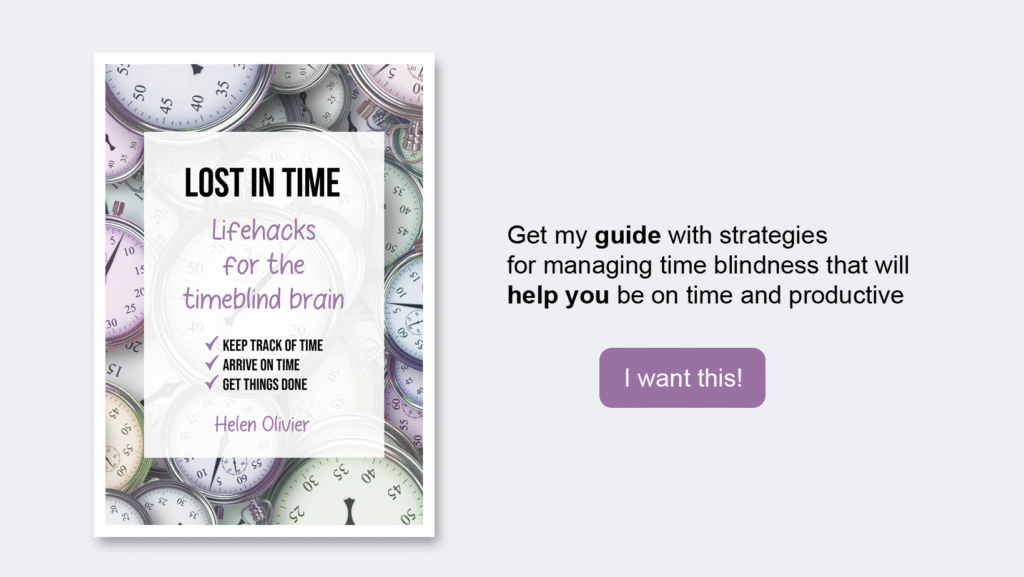For quite some time, I have been gathering tips about natural supplements to help manage ADHD. I have lurked in ADHD Facebook groups, and from time to time, someone would come up with an ADHD supplement that helped them greatly. I paid attention and added it to my list if other people said it helped them too. I looked for the best supplements for ADHD on Reddit as well. I googled. I put the information together bit by bit. Here is a list of the most often mentioned ADHD supplements for adults and children.
Some of these supplements don’t have enough scientific research behind their effect on ADHD yet, so don’t take these tips as medical advice, but as something backed up by anecdotal evidence from the experience of people with ADHD.
The big advantage of ADHD natural supplements is that they have very few side effects. Most of them can be taken safely by both adults and children to help alleviate ADHD symptoms.
Disclaimer: This blog is based on personal experience and is not medical advice. Always consult a qualified healthcare professional before making changes to your health, treatment, or medications.
1. Saffron
This is the most recent addition to my list of ADHD natural supplements. In my local ADHD group people praised it for better concentration and productivity, better sleep, and good mood. Some also said their psychiatrist has effectively used it for treating depression. I’m beginning to take it now and according to the experiences of other people with ADHD, I expect to feel the results within a week, or more realistically, a month.
The positive effects of saffron on ADHD symptoms have been the focus of recent smaller scientific studies. When it was compared to methylphenidate in a pilot study in 2019, the results indicated that 20–30 mg of saffron a day, taken for 6 weeks, was comparable with the stimulant for symptoms of both inattention and hyperactivity.
In a clinical trial in 2021, saffron and methylphenidate were used together and were found to be more effective than using just methylphenidate. A study from 2022 showed that saffron helped reduce hyperactivity better than methylphenidate, although the stimulant had better effects on inattention. Both saffron and methylphenidate allowed the people using them more hours of sleep but only saffron helped them fall asleep.
Large-scale studies of more than 100 participants haven’t been conducted yet, but saffron as a natural ADHD treatment seems very promising.
Please note that pregnant people shouldn’t take saffron because it causes uterus stimulation.
2. Omega-3 fatty acids
This is one of the natural ADHD supplements for adults and children that is pretty well-researched and its effects on ADHD symptoms are backed by science. If you are looking for a single natural ADHD supplement, I would recommend this one. According to current research, Omega-3 fatty acids can improve both impulsivity and attention.
There are three primary Omega-3 fatty acids: alpha-linolenic acid (ALA), eicosapentaenoic acid (EPA), and docosahexaenoic acid (DHA). Your body isn’t able to create them by itself, so you need to get them from food or supplements. They provide building blocks for neurons, which fire signals in the brain that release neurotransmitters like dopamine or serotonin. But if you have ADHD, some of the neurons in your brain fire differently. For people with ADHD, the Omega-3 fatty acids improve the function of the affected neurons and help create serotonin and dopamine.
An analysis of 9 studies by researchers at Oregon Health & Science University showed that children with ADHD have lower blood levels of Omega-3 fatty acids. On average, the levels of Omega-3 fatty acids in children with ADHD were 38% lower than children who don’t have ADHD. The lower level of Omega-3 fatty acids was accompanied by learning difficulties, mood swings, and defiance.
This deficiency of Omega-3 fatty acids can be genetic. The Genetic & Developmental Psychiatry Centre in London has studied 180 children with ADHD and 180 children without ADHD. The results showed that the children with ADHD had a 60 to 70 percent greater likelihood of a variation in a gene necessary to metabolize fatty acids.
Research found that Omega-3 fatty acids are about 40 percent as effective as stimulants in relieving symptoms of ADHD. Their effects are noticeable only after longer use, so don’t give up if you don’t feel better immediately. Kids between 4 and 8 years should take 1000–1500 mg a day, the daily dose for adults is 2000–2500 mg.
If you want to add more foods high in Omega-3 fatty acids to your diet, eat fish, walnuts, chia seeds, or flaxseed. I use ground flaxseed that I put in my morning oatmeal. If you are looking for supplements, choose products that have twice as much EHA than DHA (the two main types of omega-3 fatty acids.) You can take this natural ADHD supplement in the form of capsules or liquid. Vegetarians can use algae oil, but the necessary doses are bigger.
3. Ginkgo biloba
The research on ginkgo biloba as a natural treatment for ADHD is still fairly new, but the results look promising.
Ginkgo biloba modulates the nervous system and influences dopamine, serotonin, and norepinephrine signaling. This herbal supplement can positively impact the behavioral and cognitive aspects of ADHD. It helps to improve mood, has a calming effect, reduces irritability and improves frustration tolerance.
A small clinical trial from 2010 with 50 participants compared the effect of ginkgo biloba and methylphenidate. The 6-week double-blind, randomized clinical trial studied the effect of Ginkgo biloba on ADHD in children. After four weeks of treatment, the children taking methylphenidate and the children taking Ginkgo had experienced similar improvement in ADHD symptoms. However, the children taking Ginkgo biloba didn’t experience the side effects that the children taking methylphenidate: decreased appetite, headache, and insomnia.
A 2015 clinical trial has found that Ginkgo biloba is an efficient complementary therapy for children taking methylphenidate. The children had been taking methylphenidate with a supplement of either Ginkgo biloba or a placebo. The response rate in the group that received Ginkgo biloba in addition to methylphenidate was 93.5%, while in the placebo group, it was only 58.6%. The improvements were mainly in the area of inattentiveness rather than hyperactivity.
A 2017 study found Ginkgo biloba less effective than methylphenidate but more effective than placebo. It also had fewer side effects. The combination of methylphenidate and Ginkgo had better results than using the stimulant alone.
More research with longer observation periods is needed to better understand the effectiveness of Ginkgo biloba as a natural ADHD supplement.
4. Lion’s mane
Lion’s mane is a mushroom with a peculiar look that gave it its name. Powder from the mushroom can be taken in drinks or in capsules. It helps against tiredness, lack of energy, and brain fog. I have been taking it during the times when I experienced strong brain fog and it helped significantly. If I don’t have enough sleep, I usually use it in the morning instead of coffee. It doesn’t have the “kick” of coffee but helps me feel more awake. Opposed to other ADHD natural supplements, Lion’s mane shouldn’t be taken continually. It’s recommended to take at least 2 days off each week.
Lion’s mane stimulates the production of nerve growth factors which in turn help the growth and health of nerve cells. The same compounds that cause the growth of nerve cells also increase their production of dopamine and serotonin.
In experiments on mice, lion’s mane improved their short-term memory and recognition. However, only a few small clinical trials have been conducted on humans. In three of them, the lion’s mane improved their cognitive functions including memory, focus, and concentration. More large-scale studies are necessary to confirm the effect of lion’s mane as one of the natural ADHD supplements for adults. Lion’s mane isn’t recommended as an ADHD supplement for children because it hasn’t been tested on them yet. It also is not recommended during pregnancy and while breastfeeding.
5. L-tyrosine
L-tyrosine is one of the building blocks of dopamine. Our brain needs dopamine, the reward neurotransmitter, for motivation to complete tasks. The brains of people with ADHD don’t produce enough dopamine, which can cause executive dysfunction. This includes a lack of motivation. If you find yourself endlessly scrolling through social media or procrastinating in another way while internally hating yourself that you aren’t doing the work you are supposed to — and yet you are unable to start, your brain lacks dopamine.
Tyrosine is a non-essential amino acid. It helps the body to produce dopamine and norepinephrine. This can help both people with ADHD and depression. L-tyrosine is a form of tyrosine that acts as a mood elevator and antidepressant. It may also improve working memory, increase cognitive capacity, and reduce stress.
The people in Facebook discussions about natural supplements to help with ADHD remarked how taking L-tyrosine helps them immediately get more work done and how it increases their motivation and ability to focus.
People who are taking stimulant medication can benefit from taking L-tyrosine as well because the stimulants help the brain produce dopamine and L-tyrosine provides the building blocks for dopamine and norepinephrine.
6. Beware: Vitamin C
Maybe you will be surprised by this, but one of the most used vitamins can actually counter the effect of your stimulant medicine for ADHD. That is if you take stimulant medication. It is because the stimulants are strongly alkaline and if a natural acid is present in the stomach, they can’t be absorbed in the blood. Also, if you take doses of vitamin C higher than 1000 mg, the vitamin can also accelerate the excretion of amphetamine in the urine which will negate the effect of the stimulant drug.
But vitamin C can be helpful for ADHD treatment too. It modulates dopamine at the synapses in the brain, which means that it can help manage the symptoms of ADHD. The solution is simple: Don’t take any vitamin C an hour before and after taking your stimulant meds for ADHD

Are you always late? Grab a copy of my short ebook, Lost in Time: Strategies for Managing Time Blindness. It’s ADHD-friendly and filled with actionable tips and advice. Get it here!

Helen Olivier is a neurodivergent writer, AuDHD explorer, and professional overthinker with 40+ years of lived experience in the wonderfully weird world of ADHD + autism. She writes for people who’ve been told they’re “too much” or “not enough,” offering comfort, clarity, and the occasional executive dysfunction survival hack. Her blog is her way of turning daily chaos into useful insights for other neurodivergent folks.
This blog is based on personal experience and is not medical advice. Always consult a qualified healthcare professional before making changes to your health, treatment, or medications.





